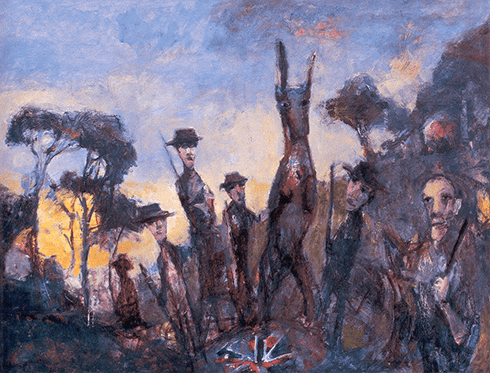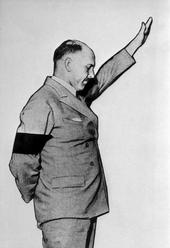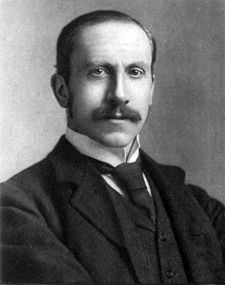D.H . Lawrence's 99 Days in Australia
SECRET ARMIES
Page 1 - Page 2
WHAT ARE SECRET ARMIES?
By ROBERT DARROCH
IN MAY 1922, THE DAY AFTER HE ARRIVED IN SYDNEY, D.H. LAWRENCE, VISITING A HOUSE AT NARRABEEN BEACH, NORTH OF SYDNEY, STUMBLED UPON THE MEMBERS OF A SECRET ARMY. THIS ENCOUNTER LED TO A MAJOR THEME IN HIS AUSTRALIAN NOVEL, KANGAROO. IN THIS ARTICLE, ROBERT DARROCH DESCRIBES THE PHENOMENON OF THE SECRET ARMY, WORLD-WIDE AND IN AUSTRALIA. |
||||||||
|
||||||||
WHAT is this phenomenon called "secret armies" - a term often bandied about, but whose precise nature (and origin, and range of manifestations) is often glossed over, or ignored? What are they? How do they manifest themselves – and why? What is their history or background? Are they an inevitable part of the political landscape - or are they aberrations? Do certain circumstances or events create a situation where they come into existence? Are they ubiquitous, or confined to liberal democracies? Could they be "the dark side" of our democratic processes? Are they usually/always right-wing, or fascist? Do they – can they - exist today? To attempt to answer these important questions, we must first try to define the term "secret army". By "secret" we imply "intended, or designed to be, clandestine". (Of course, if they were completely or successfully clandestine, we would know little, if anything about them.) This in turn means that they were primarily created to be hidden from public - and even "official" (ie, government) - knowledge and scrutiny. Or ostensibly so. The word "army" or "armies" obviously imply some structured and potentially coercive force, organised along military lines. These are what the words plainly mean. But what do they refer to? What are they attempting to describe, or point to? To help explicate this, it might be instructive to mention or list some actual so-called "secret armies", then try to draw a line between them and other political or military organisations that might be seen as similar to them, but more acceptable or legitimate. (It may be that we will come to call this "the secret army line".) We will focus primarily on Australia, but will glance elsewhere at similar and related phenomena. Let us take as our starting point Dr Andrew Moore's outline of Australian secret army phenomena in his "The Secret Army and the Premier" [1989]. (Dr Moore is Australia's acknowledged expert on secret armies.)
He refers initially to "conservative paramilitary organisations". He traces these phenomena back into the 19th century, and mentions general vigilante activity (possies, etc) and the formation of more structured groups such as the Society for the Protection of Life and Property (which was aimed at combating potential "working class" unrest in the 1850s). He mentions the use of "special constables" (civilians sworn in as auxiliaries to assist the police and/or the military in times of civic disturbance) in the 1890s and beyond (our political system retains to this day laws under which special constables can be recruited, sworn in and deployed). During a variety of strikes and industrial (ie, "working class") unrest from 1850/60 onwards, shadowy and apparently ad hoc organisations and groups were formed, evidently to stand ready to combat union-organised disruption. Whether any of these phenomena can be called "a secret army" is questionable. |
Most historians today would probably agree that they did not rise to that level of categorisation. There is little doubt, however, that disruptive, even revolutionary, elements in Australian society in the late 19th century and in the early years of the last century caused the wealthier members of society a high degree of concern, even panic – elements such as the IWW, the Fenians, firebrand revolutionaries (nihilists, etc), and mere Labor and social ("human rights") activists.
"Blood on the wattle" is a phrase that comes from the 19th century. I would argue, however, that the main root of Australian secret army activity starts, not in Australia, but in Ulster, pre-1914. Today it is difficult to imagine the political trauma generated, not only in Ulster and Britain, but in Australia, too, by the Home Rule for Ireland cause. It split Ireland between Protestant "loyalists" (ie, pro-Britain and the Empire) and the Irish-Catholic nationalists, who were increasingly (and virulently) anti-British, the latter aided and abetted by radical semi-secret military groups like the IRA. In response to such "threats" to British sovereignty and identity, the Ulster Unionists formed counter-insurgency military groups, also semi-secret, like the Ulster Defence Association (UDA). In Australia, and in particular the urban centres of Sydney and Melbourne, this "transplanted" religo-nationalistic divide was exacerbated by the tendency for the militant Labor/unionist movement to cleave to an Irish-Catholic polarity. This trend was mirrored on the conservative-imperialist side by the formation of such local bodies as the Loyal Orange Lodges. Although the Labor movement was not by any means exclusively Irish-Catholic (its leaders ostentatiously included non-Catholics like Lane, Hughes, Holman and Fisher), its make-up was increasingly Irish-Catholic, reflecting the predominant "ethnic" make-up of the Australian working class, itself largely shaped by the post-famine Irish diaspora, particularly during the 1850-70 gold rushes. It is also worth pointing out that more than half the convicts who were transported to Australia in the late 18th and early 19th centuries were of Irish-Catholic stock. Yet what Dr Moore (I think correctly) identifies as the first true "secret army" in Australia was "the Farmers Army", formed during "the Great Strike" of 1917. In actual fact, it was not all that secret. A force of over 7000 men, recruited by NSW agricultural organisations, descended on Sydney – and were billeted at the Sydney Showground - allegedly to help "defend essential services" (a recurring phrase in secret army activity) against a supposed threat from a railways and tramways strike, which soon petered out anyway. Dr Moore is I believe correct in pointing to this event as both reflecting an underlying trend in Australian society to form anti-socialist countervailing forces, and being a reaction to the increasing, potentially revolutionary militancy of the working class and the Labor movement. |
One gets the distinct impression that the conservative side of Australian politics was spoiling, if not for a fight with Labor, then some sort of confrontation. Or it may have been more of an effort to deal with the frustrations the conservative middle classes felt about a world and environment which they used to dominate but which was gradually and inexorably slipping out of their exclusive hands. This aspect of Australian secret army activity should not be underestimated. I would argue, however, that a specific event, or connected series of events, was the direct cause of the start of secret army activity in Australia, activity that ran through the 1920s and 1930s into the post-World War 2 era, and perhaps, in some vestigial form, into more recent times. But before we go into that, it is incumbent to mention another, and far more sinister (though I would argue far-fetched) possibility. There is a line of thinking in some conspiracy-embracing circles that would say that Australian secret army activity is part of a far wider, and connected, international phenomenon. Dr Moore refers to this possibility, gingerly, when he mentions, when talking about the background to the Old Guard (see below), "Rumours surrounding the existence of a secret paramilitary arm allied with projects organised before the Great War by Lord Milner". He calls these rumours "indefinite" and says, no doubt rightly, that there was never any evidence that one of these "projects", the Round Table, was anything more than "an elite debating society".
Still, given the omnipresent secrecy of the phenomenon were are investigating – secret armies – and the fact that they did well serve the cause of institutionalised conservatism, it is worthwhile to explore these possibilities in greater depth, even though they must be, lacking anything substantial in the way of proof, ultimately set aside. At the very least, they are worth examining in the cause of illuminating a cast of mind, and an era, out of which did spring real secret armies. The reason for Dr Moore's use of Lord Milner's name is in connection with Cecil Rhodes and the Boer War. (Perhaps wisely, Dr Moore does not provide notes to this section of his book, for the sources of such conspiracy theories lie far out in the domain of semi-fantasy, and are not particularly reliable.) Cecil Rhodes did not invent secret societies, nor were bodies like the Selous Scouts unknown in history. In the American War of Independence, for example, both phenomena manifested themselves, as they have done Next Page: Secret Armies 2 |
||||||



